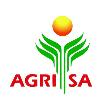The answer is intelligent management rather than draconic banning of alcohol sales
13 July 2020
The fact that the government opts for draconic measures to mitigate the impact of COVID-19 on people’s lives every time it is driven into a corner, is testimony to its incompetence and bias against certain economic sectors.
This bias finds manifestation in the concessions made to the taxi industry, while the liquor industry is subject to a total ban. This make no sense!
Everyone agrees that the escalating occurrence of COVID-19 infections and related deaths pose enormous challenges for the healthcare industry and that the virus is spread through close contact between people who do not wear masks and who fail to adhere to the precautionary measures.
Allowing taxis to use their full capacity to transport passengers will cause the virus to spread further. Many taxi drivers and owners simply ignore the regulations and fail to enforce the mask rule.
In allowing this, it is clear that the government fears the taxi industry and has given way to pressure. This makes a farce of President Ramaphosa and the government’s concern over the deadly impact of the COVID-19 pandemic.
Of greater concern is the statement by ANC spokesperson Pule Mabe last night that his party would not hesitate to sacrifice the economy in an attempt to save lives. According to these warped and insensitive statements, it is clear that the ruling party has no empathy with the millions of unemployed South Africans!
Thousands of jobs are now in jeopardy because of the renewed ban on alcohol sales. The South African wine industry contributed R49 billion to the SA economy in 2019 and, in the process, created 290 000 indirect and direct jobs. Approximately 40 000 people work on wine farms and in wine cellars.
The industry paid R7,5 billion in excise duties and VAT to the fiscus in 2019 and is the biggest agricultural exporter after citrus. The industry earns more than R9 billion in foreign exchange per year, of which R7 billion is generated through bottled exports and R2 billion through bulk exports.
To avoid the full-scale collapse of the industry, the government should instead focus on intelligent management and implementation of best practice in terms of alcohol sales, including the following:
Allow for e-trading in alcohol;
Limit volumes in areas where alcohol abuse is rampant;
Set an earlier and longer curfew for weekends;
Apply stricter penalties for those who drive under the influence of alcohol, those who arrange parties where alcohol is consumed in abundance and those found guilty of domestic violence; and
Make sure that all hospitals have sufficient resources and are effectively managed.
There is no justification for a total ban on alcohol sales, also not for the inconsistent treatment of and bias against certain sectors! The answer lies in intelligent management and implementation of international best practice to prevent further spread of the pandemic and also to protect the economy and promote job creation.
Issued by Christo van der Rheede, Agri SA, Deputy Executive Director, 13 July 2020

